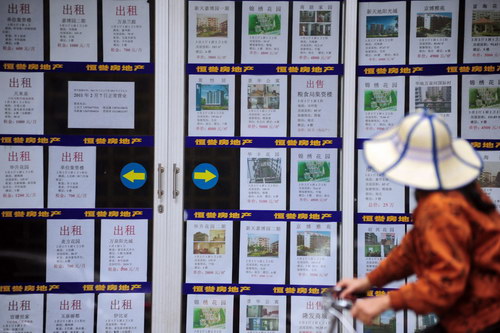Real Estate
- Details
- By David Cao
- Hits: 1523
Mark another milestone for China’s ever-rising economic profile: UBS emerging-markets economist Jonathan Anderson has declared China’s property industry “the single most important sector in the entire global economy.”
In a research note Wednesday, Mr. Anderson, a longtime China watcher, says that “real-estate and housing construction pervade the entire [China] growth model. They are the most important determinant of commodity demand, a very big marginal driver of China’s external surpluses, and indeed a crucial key to real understanding of household balance sheets, saving and investment behavior and the debate around Chinese rebalancing.” In other words, he says, “from a macroeconomic perspective if you don’t understand Chinese property, you probably don’t understand China.”
Many global investors won’t find the declaration all that surprising, having seen shares in many companies buffeted over the past year by Beijing’s efforts to wrestle with soaring house prices while trying to avoid undercutting the construction industry. But it is remarkable sign of the times nevertheless. As Mr. Anderson notes, “until very recently” the proper response to the question of which sector is most important “would almost certainly have been U.S. financials and/or U.S. housing.”
Read more: Chinese Property: The Most Important Sector in the World
- Details
- By David Cao
- Hits: 1984

A woman looks at housing sale advertisements in Qionghai, Hainan province. Total sales in Hainan jumped by 116.7 percent in December from the previous month, hitting 9.4 billion yuan.
Property sales and prices in Hainan, China's first international tourism island, rebounded during the city's tourist high season, with investors increasingly looking for opportunities in the commercial sector.
According to the National Bureau of Statistics, the price of properties in Sanya rose by 48 percent year-on-year in December, the largest increase among 70 major cities. Property prices in Haikou also rose, by 29.7 percent year-on-year.
The floor space of residential properties sold in December climbed 98.1 percent month-on-month, compared with a 52.3 percent surge for 2010. The total sales jumped by 116.7 percent in December over the previous month, hitting 9.4 billion yuan ($1.4 billion).
Though the local government has launched measures to limit the number of homes a family can purchase in Hainan, the development of Hainan international tourism island and the construction of railways on the island attracted a growing number of investors.
Statistics from the Sanya property transaction website show the floor space sold in December increased by 46 percent over the previous month, with the average sales price reaching 21,542 yuan a square meter, up 16.7 percent month-on-month.
- Details
- By David Cao
- Hits: 1517

China announced details of a long-awaited property tax in two of its largest urban centers, but the move intended to crack down on speculation and curb rising prices that are fueling public anger was relatively mild and analysts said it would have only a limited impact on investment.
The trial tax, the closest thing yet to the style of tax levied annually on residential property in countries like the U.S., will be applied differently in Chongqing and Shanghai, apparently to see which one works best, before being rolled out across the country.
The tax comes after the country's cabinet on Wednesday raised the minimum down payment on second-home purchases to 60% from 50%, and imposed limits on home purchases as part of efforts to cool the overheated real-estate sector and rein in inflation.
"The tax, by itself, is not very harsh," said Remy Chan, managing director of CBD Commercial Investment Management, a 3 billion yuan ($456 billion) private-equity property fund in Shanghai. "But together with the new limits on home purchases and higher down payment for second homes, it shows the government is determined to rein in speculation."
- Details
- By David Cao
- Hits: 1593
Beijing’s credibility is being put to test again, now that the city of Chongqing appears on the verge of pioneering a groundbreaking real estate tax as a fresh weapon to tackle China’s stubborn property inflation.
According to the Xinhua News Agency on Sunday, the northwestern metropolis is finalizing plans for levying the new tax on high-end residential real estate. The mayor of Chongqing, Huang Qifan, has recommended approval of the tax by the municipal legislature, and the Ministry of Finance has approved the tax in principle. Xinhua said the city could start collecting it by the end of March.
More In Property
The moment the news emerged, it has produced not only a hot debate but also considerable suspicion, including some of the more outspoken local media.
The adoption of the so-called real estate tax, which has been mulled and touted by Beijing for months, should in theory benefit China’s long-overdue effort to regulate its wayward property market with more internationally accepted methods and clean up some of its persistent fiscal anomalies and inefficiencies.
- Details
- By David Cao
- Hits: 1786

A customer tries the bed at a "capsule inn" in Shanghai, East China, Jan 6, 2010. A "capsule inn" covering an area of more than 300 square meters with 68 cuboids where guests could rest will open near Shanghai Railway Station soon. There are independent power sockets, clocks, lights and flat screen televisions inside the cuboids. Guests could also enjoy wireless internet service at the "capsule inn".
More Articles …
Page 8 of 19